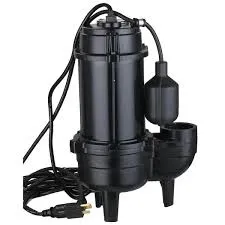Icelandic
- Afrikaans
- Albanian
- Amharic
- Arabic
- Armenian
- Azerbaijani
- Basque
- Belarusian
- Bengali
- Bosnian
- Bulgarian
- Catalan
- Cebuano
- Corsican
- Croatian
- Czech
- Danish
- Dutch
- English
- Esperanto
- Estonian
- Finnish
- French
- Frisian
- Galician
- Georgian
- German
- Greek
- Gujarati
- Haitian Creole
- hausa
- hawaiian
- Hebrew
- Hindi
- Miao
- Hungarian
- Icelandic
- igbo
- Indonesian
- irish
- Italian
- Japanese
- Javanese
- Kannada
- kazakh
- Khmer
- Rwandese
- Korean
- Kurdish
- Kyrgyz
- Lao
- Latin
- Latvian
- Lithuanian
- Luxembourgish
- Macedonian
- Malgashi
- Malay
- Malayalam
- Maltese
- Maori
- Marathi
- Mongolian
- Myanmar
- Nepali
- Norwegian
- Norwegian
- Occitan
- Pashto
- Persian
- Polish
- Portuguese
- Punjabi
- Romanian
- Russian
- Samoan
- Scottish Gaelic
- Serbian
- Sesotho
- Shona
- Sindhi
- Sinhala
- Slovak
- Slovenian
- Somali
- Spanish
- Sundanese
- Swahili
- Swedish
- Tagalog
- Tajik
- Tamil
- Tatar
- Telugu
- Thai
- Turkish
- Turkmen
- Ukrainian
- Urdu
- Uighur
- Uzbek
- Vietnamese
- Welsh
- Bantu
- Yiddish
- Yoruba
- Zulu
Telephone: +86 13120555503
Email: frank@cypump.com
des . 26, 2024 20:47 Back to list
Understanding the Advantages and Uses of Slurry Pumps in Various Industries
Exploring the Benefits and Applications of Slurry Pumps
Slurry pumps play a critical role in various industries by efficiently transporting slurry—a mixture of solids and liquids—across different processes. These pumps are designed to handle materials that have a high solid content, which can be abrasive and corrosive, presenting significant challenges for traditional pumping systems. Understanding the benefits and applications of slurry pumps can provide insights into their importance within industrial processes.
The Advantages of Slurry Pumps
1. Robust Design Slurry pumps are specifically engineered to handle tough conditions. They feature a robust build, often utilizing materials like hardened alloys or rubber linings that can withstand erosive wear. This durability prolongs the pump's lifespan and reduces maintenance costs, making them a cost-effective solution in the long run.
2. High Efficiency Slurry pumps are designed for optimal hydraulic performance. Their impeller and casing designs improve flow and reduce energy consumption, making them more efficient than standard pumps when dealing with slurries. High efficiency translates to lower operational costs, especially in large-scale applications where energy consumption is a significant factor.
3. Versatility Slurry pumps can transport a wide range of materials, from fine particles to heavy aggregates. This versatility allows them to be used in various sectors, including mining, wastewater treatment, and construction. Industries dealing with mineral processing, chemical production, and dredging frequently rely on slurry pumps thanks to their ability to handle mixtures with varying viscosities and solid contents.
4. Reduced Blockages A common issue in pumping systems is the potential for blockages, especially with viscous or solids-laden fluids. Slurry pumps are designed to minimize this risk through appropriate design features such as larger inlet passages and specialized impeller geometries, which help maintain a steady flow even in challenging conditions.
5. Self-Priming Capability Many modern slurry pumps come with self-priming options, allowing them to remove air from the pump casing before operation. This feature is particularly advantageous in applications where the pump may not always be submerged in the slurry, preventing cavitation and ensuring consistent performance.
Applications of Slurry Pumps
'exploring the benefits and applications of slurry pump ...'

Slurry pumps find applications across various industries, each benefiting from their unique design and capabilities.
1. Mining and Mineral Processing One of the largest users of slurry pumps is the mining and mineral processing sector. These pumps transport slurry containing valuable minerals from extraction sites to processing facilities. They handle everything from the initial slurrying of ores to the transport of tailings—waste materials left after extracting valuable minerals.
2. Wastewater Treatment In wastewater treatment plants, slurry pumps are essential for transporting sludge—highly viscous slurry containing solids removed from sewage. Their ability to handle such materials is crucial in ensuring efficient processing and reducing the overall environmental impact of wastewater.
3. Construction In construction, slurry pumps are used for transporting concrete slurries and for drilling operations where mud or slurry is used to stabilize boreholes. These pumps aid in maintaining fluid circulation during the drilling process, effectively removing cuttings while providing the necessary pressure for drilling operations.
4. Dredging Slurry pumps are vital in dredging operations, where they assist in removing sediment, mud, and debris from the bottom of water bodies. Their ability to handle varying sediment types ensures effective dredging and maintenance of navigable waterways and ports.
5. Chemical and Pharmaceutical Industries Slurry pumps are also used in transporting slurries of chemicals and pharmaceuticals, where precise composition and handling of complex mixtures are necessary. Their reliability in transferring potentially hazardous materials safely is of utmost importance.
Conclusion
Slurry pumps are indispensable in various industrial applications, offering numerous benefits through their specialized design and functionality. Their robustness, efficiency, and versatility make them essential tools in industries ranging from mining to wastewater treatment. As industries continue to evolve, the demand for reliable slurry handling solutions, such as slurry pumps, will likely increase, further highlighting their importance in modern industrial processes.
-
ISG Series Vertical Pipeline Pump - Chi Yuan Pumps Co., LTD.|High Efficiency, Energy Saving, Low Noise
NewsJul.30,2025
-
ISG Series Vertical Pipeline Pump- Chi Yuan Pumps|High Efficiency&Low Noise
NewsJul.30,2025
-
ISG Series Vertical Pipeline Pump-Chi Yuan Pumps Co., LTD.|High Efficiency&Energy Conservation
NewsJul.30,2025
-
ISG Series Vertical Pipeline Pump - Chi Yuan Pumps Co., LTD.|Advanced Hydraulic Design&Energy-Efficient Solutions
NewsJul.30,2025
-
ISG Series Vertical Pipeline Pump - Chi Yuan Pumps Co., LTD.
NewsJul.30,2025
-
ISG Series Vertical Pipeline Pump - Chi Yuan Pumps Co., LTD.|energy-efficient fluid handling&industrial durability
NewsJul.30,2025










